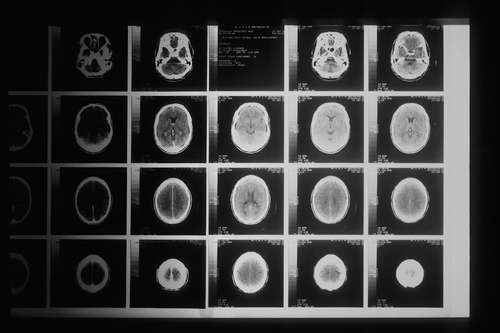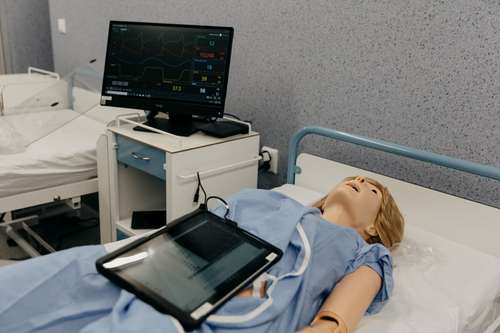Sleep apnea isn’t just about loud snoring at night—this sleep disorder can have serious implications for your brain health. In recent research, experts are finding that moderate to severe obstructive sleep apnea might boost the risk of cerebral microbleeds, tiny brain injuries that can lead to dementia or even stroke. It’s a sobering reminder of how interconnected our sleeping patterns and overall neurological health really are.
When you consider the potential health risks, it’s more than just disturbed sleep. Conditions like sleep apnea are being increasingly recognized for their deep and wide-ranging impacts, from brain damage to cognitive decline. It makes you wonder: what exactly is happening inside your brain while you sleep?
Understanding Sleep Apnea and Its Complications
Let’s dive into what sleep apnea is all about, and explore the complications that come along with it. Sleep apnea is a type of sleep disorder characterized by repeated interruptions in breathing during sleep. These breathing pauses can lead to a significant drop in oxygen levels, causing stress on the brain and other vital organs.
The term obstructive sleep apnea (OSA) is key here. OSA occurs when the soft tissues in the throat collapse and block the airway repeatedly during sleep.
These interruptions not only affect the quality of sleep but also have cascading effects on bodily functions. For example, consistent drops in oxygen can impair brain function, incrementally increasing the risk of microbleeds. These microbleeds, tiny clusters of hemorrhages, may escalate the stroke risk and potentially pave the way for dementia over time.
When you strip it down to the basics, imagine the brain as an intricate computer. A steady supply of oxygen is essential for it to run smoothly. Every time there's a dip in oxygen levels because of sleep apnea, it’s like a computer momentarily losing power—over time, these interruptions can lead to serious hardware issues, impacting brain function.
Microbleeds in the Brain: What They Are and Why They Matter
Now that we’ve covered sleep apnea, let’s talk about cerebral microbleeds and why they are so concerning. Microbleeds are small, chronic lesions in the brain, detected via imaging tests like magnetic resonance imaging (MRI). Even though they are tiny, these microhemorrhages can subtly damage brain tissue and impair cognitive functions.
Many experts believe that with persistent sleep apnea, the repeated oxygen deprivation can weaken blood vessels in the brain, making them more susceptible to these microbleeds. Think of it like a worn-out hose in a garden; a consistent drop in pressure can cause leaks, leading to water damage. In this case, the leaks are in the brain, resulting in damage that could potentially increase dementia risk.
Research suggests that the microbleed risk may not only be a precursor to dementia but also a marker for stroke risk. The brain’s health is so delicately balanced that even small injuries can have large, lasting impacts. It reminds us how our bodies are interconnected in ways that sometimes catch us completely off guard.
Linking Sleep Apnea to Dementia and Stroke
Let’s connect the dots further. Sleep apnea isn’t an isolated condition; it’s a contributing factor in a web of neurological health issues. Studies indicate that the intermittent lack of oxygen during sleep can trigger or exacerbate brain damage. This gradual build-up of damage, often observed as brain microbleeds, is strongly linked to a heightened risk of both stroke and dementia.
Have you ever wondered how one small health issue can spiral into another? Many people with untreated sleep apnea might experience chronic tiredness and headaches, but the implications for brain health run much deeper. The recurring oxygen dips initiate an inflammatory response within the brain, possibly accelerating cognitive decline. This means that if sleep apnea goes untreated, it may set the stage for more dangerous conditions down the line, such as stroke or the onset of dementia.
The connection between sleep apnea and these severe neurological conditions emphasizes the importance of early detection and treatment. Modern research continuously underscores the significance of quality sleep, not only for daily performance but also for long-term brain health.
Practical Steps to Manage and Prevent Complications
Knowing these risks, the next natural question is: what can you do about it? The good news is that sleep apnea complications, including the increase in microbleed risk, can be managed and even reduced with proper interventions. Awareness and timely action are key unities in preserving overall brain function.
For starters, if you suspect sleep apnea, do not wait to seek medical advice. Ever wonder how many serious conditions could be prevented with just a bit of proactive behavior? A sleep study is the first step in diagnosing the disorder accurately. Once diagnosed, treatment options include lifestyle changes such as weight loss and quitting smoking, which have been shown to positively affect sleep apnea outcomes.
CPAP (Continuous Positive Airway Pressure) therapy is often recommended by specialists. It may sound a bit daunting, but think of it as a tiny investment in your brain’s future health. This treatment helps keep the airway open during sleep, ensuring that you get steady oxygen levels and reducing the chance of those harmful, repeated oxygen dips. It’s like having a security guard for your brain, ensuring that its vital functions aren’t compromised.
Regular check-ups are also invaluable. They help monitor not only sleep disorder status but also the broader aspects of neurological health. It’s really all about taking charge of your well-being. After all, prevention is always better than dealing with the aftermath of a stroke or severe cognitive decline later on.
Looking Ahead: The Importance of Research and Awareness
Our understanding of how sleep apnea impacts brain health is evolving every day thanks to ongoing research. Scientists continue to work tirelessly to elucidate the connections between sleep disorders, brain microbleeds, dementia, and stroke risk. It’s both encouraging and alarming, knowing that something as common as sleep apnea could lead to far-reaching neurological effects.
Maintaining a conversation about these risks is crucial. Raise awareness among loved ones and encourage discussions at your local health centers. If you or someone you know is struggling with sleep apnea, know that you are not alone, and more treatment options are available now than ever before. We’re moving towards a future where the brain’s resilience is bolstered by continued education and proactive health measures.
As more information comes to light, the focus remains clear: early diagnosis and treatment can make a significant difference. This evolving understanding reminds us that it’s never too late to take self-care seriously. We owe it to ourselves to sleep well and protect our most valuable asset—our brain.
In conclusion, sleep apnea may indeed raise the microbleed risk in the brain, potentially leading to severe outcomes like dementia and stroke. The evidence is mounting, and the connection cannot be ignored. By understanding these risks, seeking the right diagnosis, and embracing treatment options, you can significantly influence your brain’s long-term health. Remember, the journey to robust brain health starts with a good night’s sleep!




